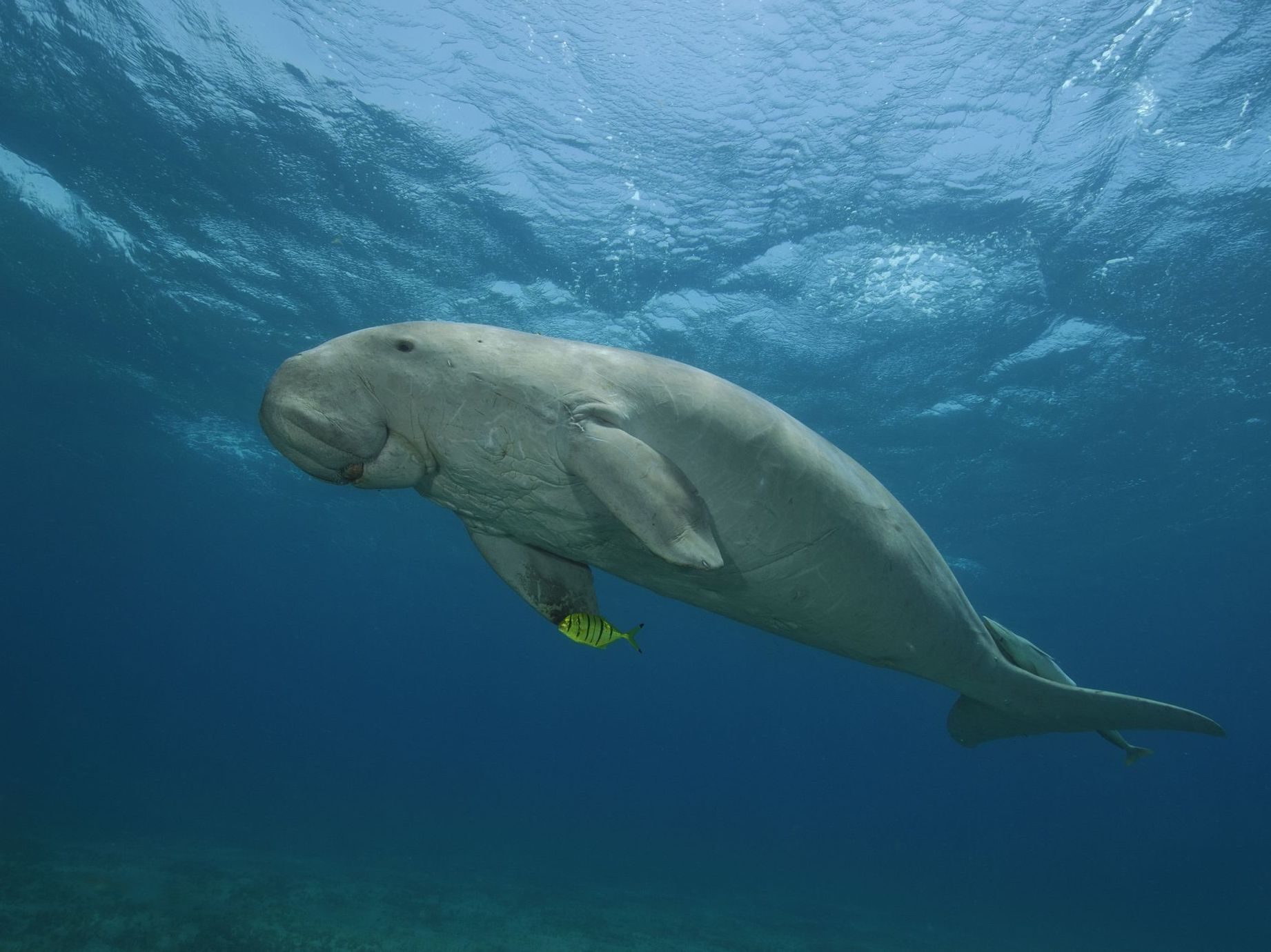Qatar’s dugongs population has greatly increased in size, with the number of sea creatures in the country’s waters reaching over 800.
Qatar’s waters are home to one of the largest herds of dugongs, with numbers of the shy and lovable marine mammal now reaching 840, marking the largest gathering of these aquatic animals in Qatar in three decades.
The abundance of dugongs, also known as sea cows, is the result of a partnership between the Ministry of Municipality and Environment (MME), Qatar University (QU), and ExxonMobil Research Qatar (EMRQ).
The ministry has been committed to protecting dugongs and has frequently visited areas where they are found to conduct research on the animals.
Doha’s dugongs are part of a larger group found in the Arabian Gulf and is the second largest group in the world, second only to Australia.
Read also: World Wildlife Day: Meet Qatar’s fascinating wildlife animals
“The largest group of dugongs recorded was of the Qatari dugong – about 840 animals were found in the sampling that we took in 2020 with QU and EMRQ. The first gathering in Qatari waters was observed 30 years ago by a research group — consisting of more than 670 individuals,” said Director of Natural Reserves at the MME Saleh Hassan Al Kuwari to local media.
Qatar’s dugong population is believed to have made its first appearance in the Arabian Gulf around 7,500 years ago, according to AlKuwari. But the aquatic mammal’s species, the Sirenia family, dates back almost 60 million years.
Dugongs are an important player in maintaining aquatic ecosystems, as they contribute to maintaining healthy seagrass meadows, which are essential for fish and crustaceans nurseries, according to Dr. Mehsin Al Yafei from QU.
“Dugongs are a valuable resource in our ecosystem, and they are listed as vulnerable by the International Union for Conservation of Nature (IUCN), which suggests that they are facing a high risk of extinction in the wild in the medium term future,” he added.
But Qatar’s native sea cow is facing the risk of extinction.
This is due to seagrass food sources being threatened by coastal development or industrial activities that contribute to water pollution. Another reason is that dugongs often become victims of accidental entanglement in fishing nets, according to Yafei.
On Monday, Sheikha Almayassa bint Hamad shed light on the sea creatures after a visit to the dugong exhibition in the Qatari capital.
“Qatar has one of the largest congregation of the Dugong and it’s our responsibility to protect this habitat. How do we do this? 1) keep our water clean 2) look out for Dugongs when driving boats 3) not to throw fishing nets and other waste into the sea,” the Qatari royal said.







